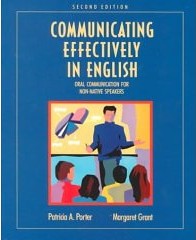Some developments in electioneering and governance
1. Takoma Park, Maryland, a small city in Montgomery County, Maryland that borders DC, has proposed lowering the voting age to 16. See "Takoma Park considers lowering voting age," "Takoma Park smartly trying to lower voting age to 16" (editorial) from the Gazette.
From the editorial:
Takoma Park, known for its progressive and sometimes quirky ways, is considering taking an extra, historic step toward voting inclusiveness. The city might let 16-year-olds vote in municipal elections, when council members and the mayor are chosen. Rob Richie, FairVote’s executive director, said Takoma Park would be the first in the country to adopt a 16-year-old voting age. ...
For Takoma Park, this is part of a series of proposed election-related charter amendments that will be the subject of a public hearing April 8.
I'm fine probably with 16 year olds voting. But there are so many other issues with local government and elections that lowering the age of enfranchisement doesn't address.
 The ESL textbook Communicating Effectively in English is actually a wonderful primer about how to go about being an active and involved citizen.
The ESL textbook Communicating Effectively in English is actually a wonderful primer about how to go about being an active and involved citizen. 2. Suburban jurisdictions in Prince George's County suggest that they should switch from 2-year terms to 4-year terms for Council, and the Gazette editorializes in favor, "Longer terms make sense for Prince George’s municipalities."
Although I think those municipalities ought to consider changing their election cycle like Rockville is thinking about. Spring elections get incredibly low turnout. Councilpeople are elected with fewer than 200 votes.
3. The City of Rockville is going through some charter review and a number of changes are proposed. Recommended changes are having elections simultaneous with national elections, lengthening the term of office to four years, adding two seats (from four) to the City Council, and a variety of process changes for voting.
4. Speaking of DC's Home Rule Charter, DC City Council candidate Matthew Frumin suggests since 2023 is the 50th anniversary of the passage of the DC Home Rule Act, that the run up to this anniversary is a good time to reflect on the success and failures of Home Rule and provides the impetus to suggest and make changes.
I think that's a very interesting point, although I'd hate to have to wait 10 years or more to bring about necessary changes.
5. In Chicago, a study from the University of Illinois at Chicago finds that Mayor Rahm Emanuel has tighter control over the Chicago City Council than his predecessor, Richard Daley Jr. See "Study: Emanuel has firmer control over City Council than Daley did" from the Chicago Sun-Times. From the article:
After analyzing 30 divided rolls calls in the nearly two years since Emanuel took office, University of Illinois at Chicago researchers concluded that Emanuel has enjoyed more iron-fisted control over the council than former mayors Richard M. Daley, Richard J. Daley or Ed Kelly, the Democratic machine co-founder.
Twenty-one aldermen supported the mayor’s programs 100 percent of the time, while 18 others were more than 90 percent in lock-step.
There have been no shortage of controversies — ranging from speed cameras, police station and mental health clinic closings to the mayor’s Infrastructure Trust and his plan to nearly double water and sewer fees.
But only seven of the 30 issues drew six or more dissenting votes. Emanuel’s average level of support on all of the divided roll calls was 93 percent, compared to 83 percent during Richard J. Daley’s first two years in office and Kelly’s 88 percent.
-- The report: Continuing the Rubber Stamp City Council
6. Apparently, some of the Chicago Politics studies by the Department of Political Science at UIC was started originally in association with a group called Developing Government Accountability to the People, although both websites don't seem to have been updated very recently. Some interesting resources are still on the websites.
Labels: bad government, elections and campaigns, electoral politics and influence, good government, government oversight, Growth Machine



4 Comments:
http://www.theatlantic.com/national/archive/2013/04/lets-set-a-national-standard-for-our-students-a-really-low-one/274808/
Yep, LOWERING the voting age to 16 is a terrible idea. Lowering it to 18 was bad one also, but nothing can be done at this point.
(If anything, I'd raise it to 25 or 30. Sort of the adult only baptism rules)
In term of home rule, I am not sure if any candidate has made the point that we need a return of local prosecutorial power. Ideally a hybrid system where DC has an elected prosector, federal career prosectors, and the power of the purse. Complex but workable in the hybrid system.
my point about the AG, elected, is that getting the local prosecutorial authority is a process. If we get the AG position going, and it does well, it makes a better position from which to add the prosecutor element.
2. I've not been in front of the computer today, so I just read the Post editorial on the AG, which I will blog about. I can't imagine the AG in states operates so differently and that the exec. branch needs hundreds of its own lawyers...
The DC office is notorious for throwing 8-10 AUSAs on a misdemeanor charge.
Very much look like empire building rather than building a workable justice system.
probably because they don't have enough to do?
if they did felonies, they'd be busy... proving beyond a reasonable doubt takes a lot of work.
Post a Comment
<< Home